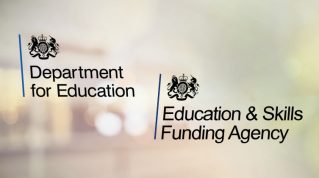The failure of the spring statement to address spiralling costs “signals a return to the austerity of the 2010s”, a union has warned.
Chancellor Rishi Sunak delivered his spring statement in the House of Commons on Wednesday, which began with a stark warning to leaders of public services hoping to see extra funding.
Interest on government borrowing next year is forecast to quadruple from last year’s payments to a record £83 billion, the highest on record.
“That is why we have already taken difficult decisions with the public finances, and that is why we will continue to weigh carefully calls for additional public spending,” the chancellor said from the dispatch box.
From the outset, framed against what the Office for Budget Responsibility described as “unusually high uncertainty around the [economic] outlook”, expectations for new money for education, had there really been any, will have dissolved.
While the chancellor acknowledged continuing skills challenges in his speech, the Treasury has made it clear that it won’t foot the bill and will assess what more employers could be doing to pay for training.
“We lag behind international peers on adult technical skills. Just 18 per cent of 25-to-64-year-olds hold vocational qualifications, which is a third lower than the OECD average, and UK employers spend just half the European average on training their employees,” the chancellor said.
Treasury documents state that “government investment alone will not address this challenge”, paving the way for its elusive ‘review’ of the tax system and how it can better incentivise employers to invest in “the right kind of training”.
Standout interventions announced in the spring statement were designed to ease the cost-of-living crisis facing households and rising costs to businesses. Policies included an immediate cut in fuel duty, raising the earnings threshold for national insurance contributions from April and a one percentage point cut to the basic rate of income tax in 2024.
Organisations with class 1 national insurance liabilities less than £100,000 will be eligible for a £1,000 increase in the employment allowance. From this April, this will allow those eligible to reduce their national insurance payments by £5,000, up from £4,000. This may bring some relief to smaller training organisations and charities.
There were, however, no measures in the spring statement to alleviate the broader funding concerns of colleges and training organisations, who have been warning of increased costs, particularly rising energy bills and inflation.
Inflation hit a 30-year high of 6.2 per cent in February this year. The OBR predicts even further price rises over the course of the year, peaking at 8.7 per cent in quarter 4 of 2022, and remaining above seven per cent until at least April 2023.
In a briefing for Association of Colleges members, its deputy chief executive, Julian Gravatt, wrote that the current predicted rate of inflation was “enough to wipe out the majority of the extra 16-to-18 funding announced in the 2021 spending review and to cause significant real-terms cuts in post-18 spending”.
The per-student national base rate for full-time 16- and 17-year-old students is set to increase from £4,188 to £4,542 from August 2022. However, in return for the increased funding, the Department for Education wants providers to deliver 40 additional teaching hours for students.
Increasing prices, energy costs and funding additional teaching hours will place even greater financial pressure on colleges and training organisations.
Yet the spring statement did not include any additional financial support for FE and skills providers.
Geoff Barton of the Association of School and College Leaders said he was “disappointed that the chancellor failed to address the financial pressures facing the education system amidst soaring inflation”.
And Mary Bousted, joint leader of the National Education Union, warned that the chancellor’s “refusal to increase education funding in the face of this inflation surge signals a return to the austerity of the 2010s”.

















Your thoughts